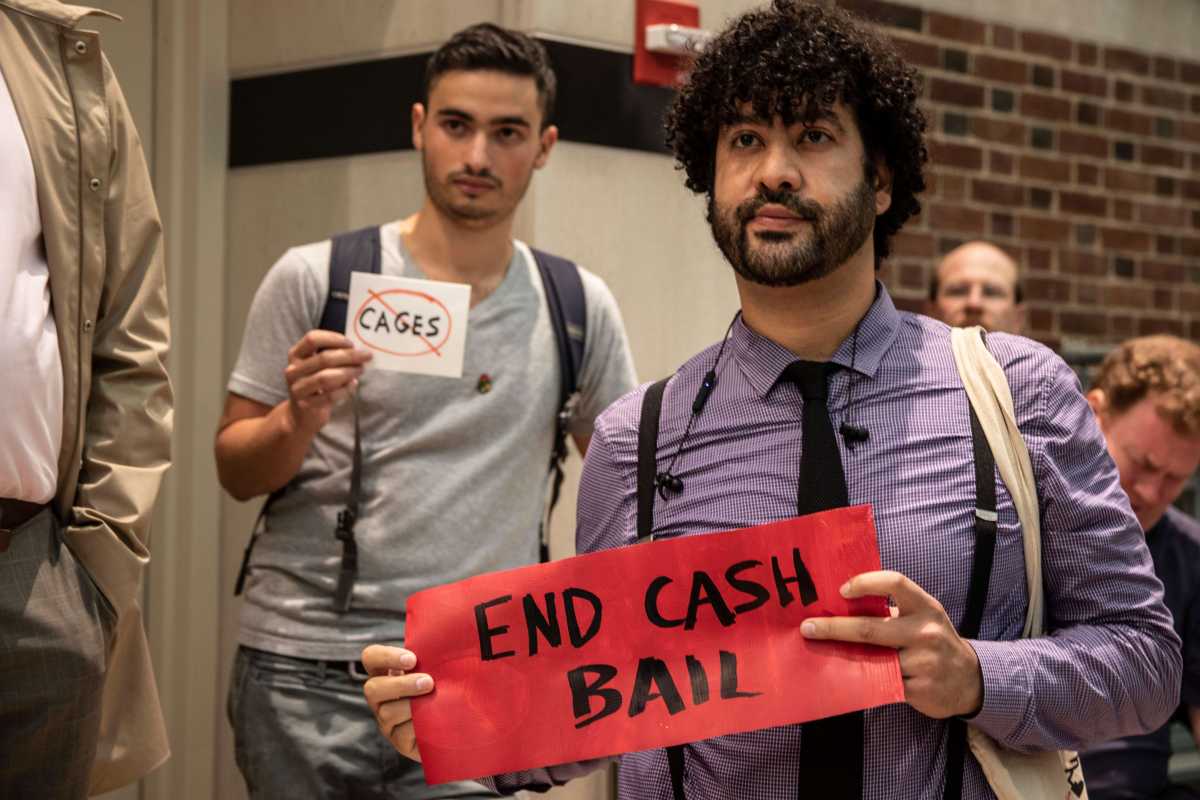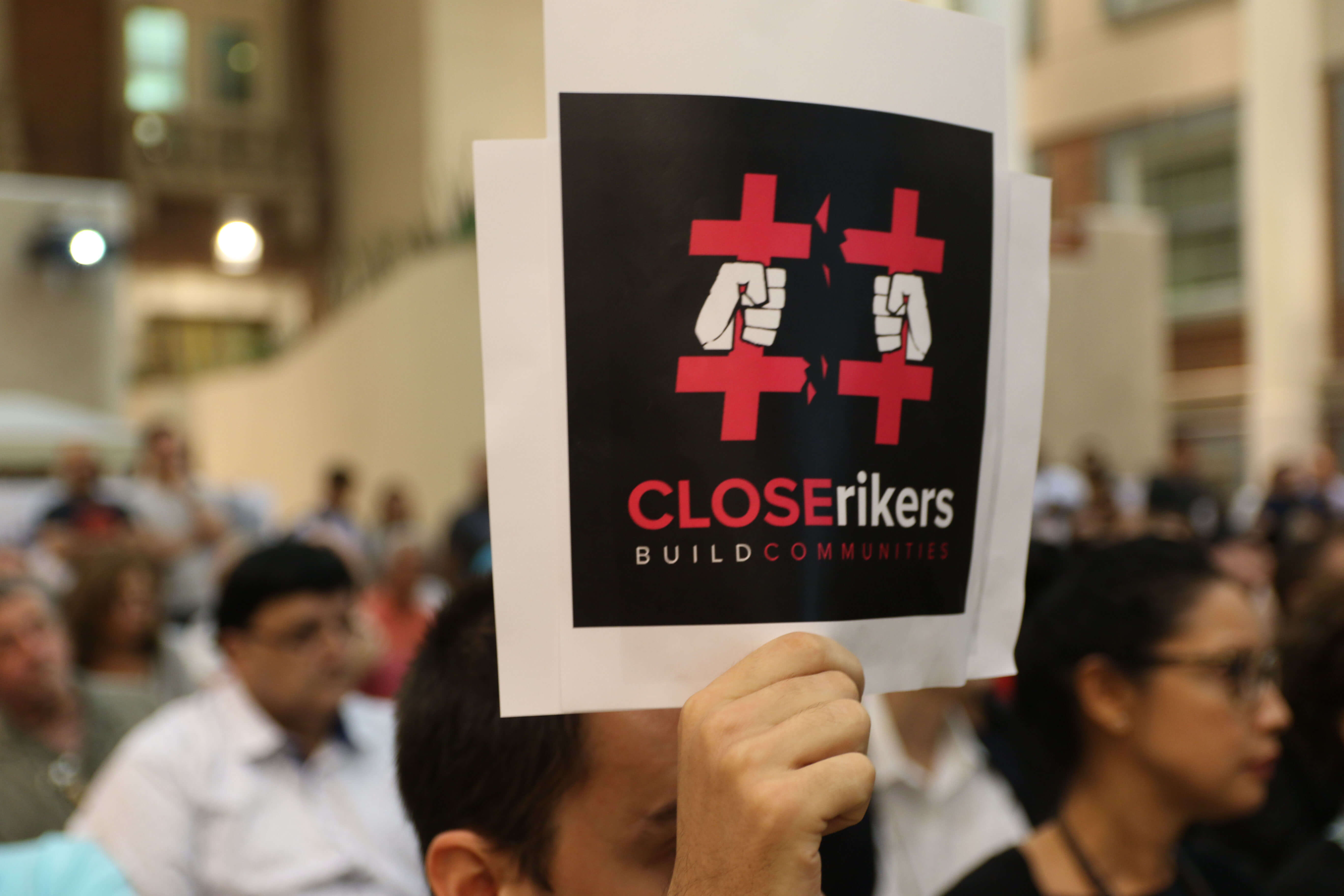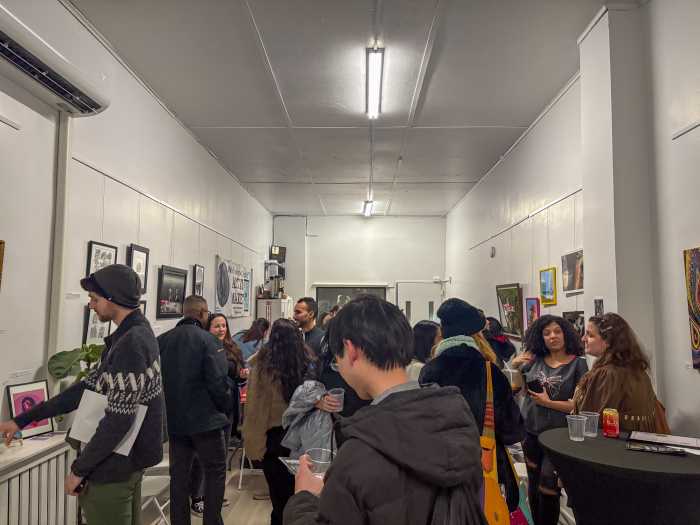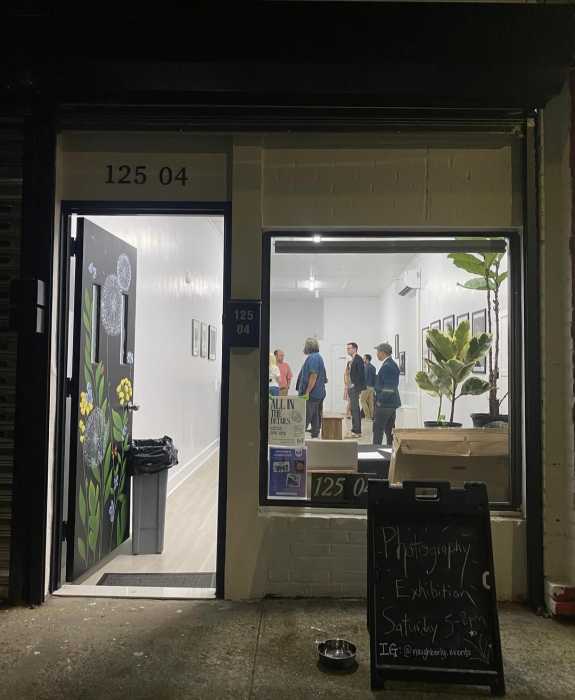Nearly 200 people gathered at Queens Borough Hall in Kew Gardens on Tuesday night to voice their concerns about a plan to rebuild and reopen the Queens Detention Complex as part of the city’s long-term plan to close Rikers Island.
A generation gap seemed to mark the dividing lines in the debate. Sign-holding 20-somethings shouted against cash bail and a criminal justice system which they believe is inherently racist, while older attendees grumbled about decreasing property values stemming from the jail’s reopening. Along the way, one parent after another spoke with great concern about the safety of their children.
Despite the divisions, it seemed nobody attending the first of three City Environmental Quality Review (CEQR) meetings was happy about the proposed jail in Kew Gardens. New York City agencies are required to hold such meetings in order to see what effect a proposed project may have on communities.
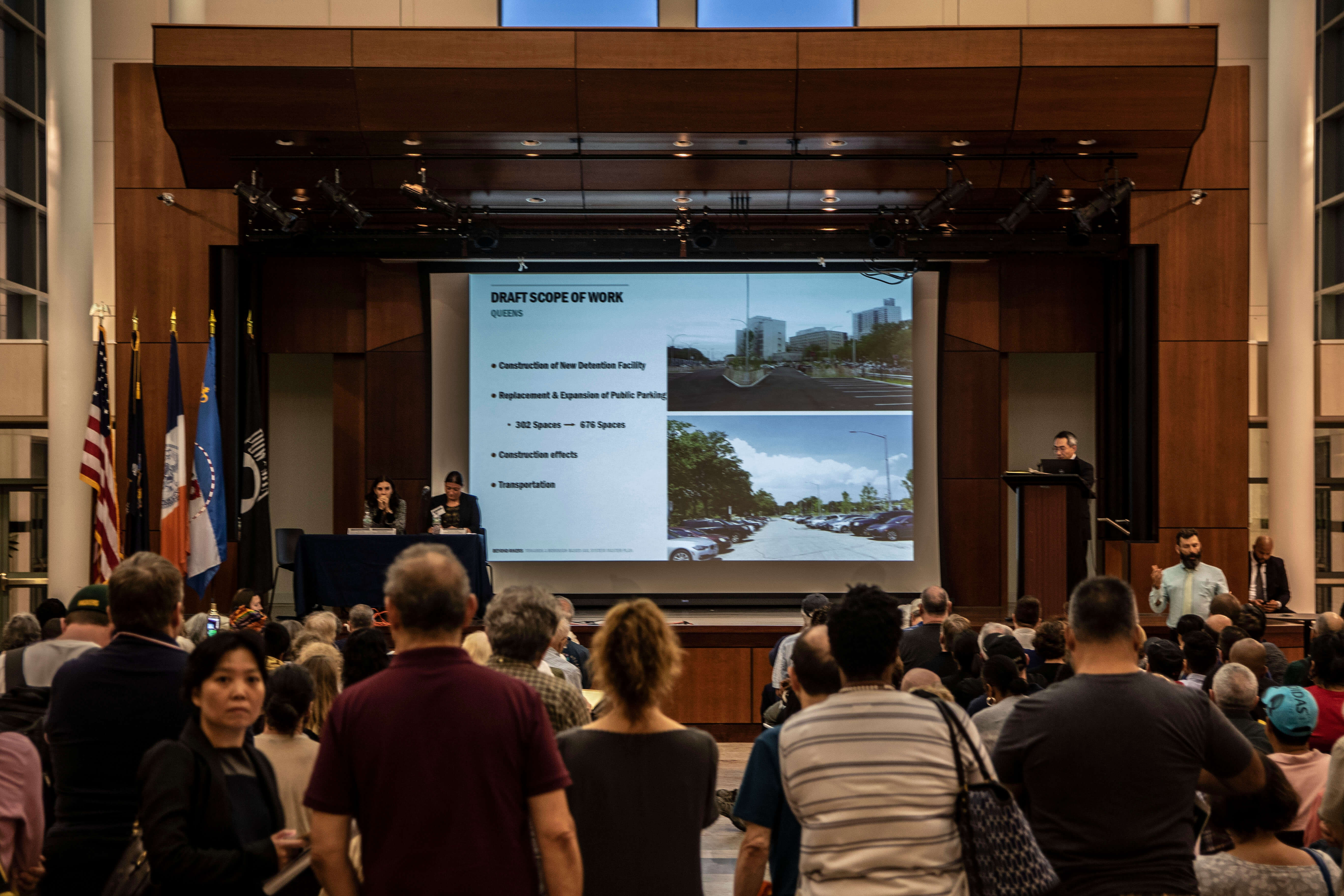
“I can tell what is propaganda and this is propaganda,” said Mara Einstein, a professor of marketing at Queens College and author of the book Blackops Advertising. Einstein, like many of the attendees, did not believe that the city had the interest of New Yorkers at heart.
Like the majority of her fellow Queens residents, Einstein figured that the city was more interested in the potential monetary gain from selling the land on Rikers Island to private developers.
“We understand that parking is a significant issue,” said Deputy Director of NYC Mayor’s Office of Criminal Justice Dana Kaplan as she attempted to highlight the benefits of the proposed Kew Gardens jail site. But an interruption of boos and angry shouts echoed in the high-ceilinged Helen Marshall Cultural Center. “You will be provided with close to 700 publicly accessible parking spaces provided on sight.”
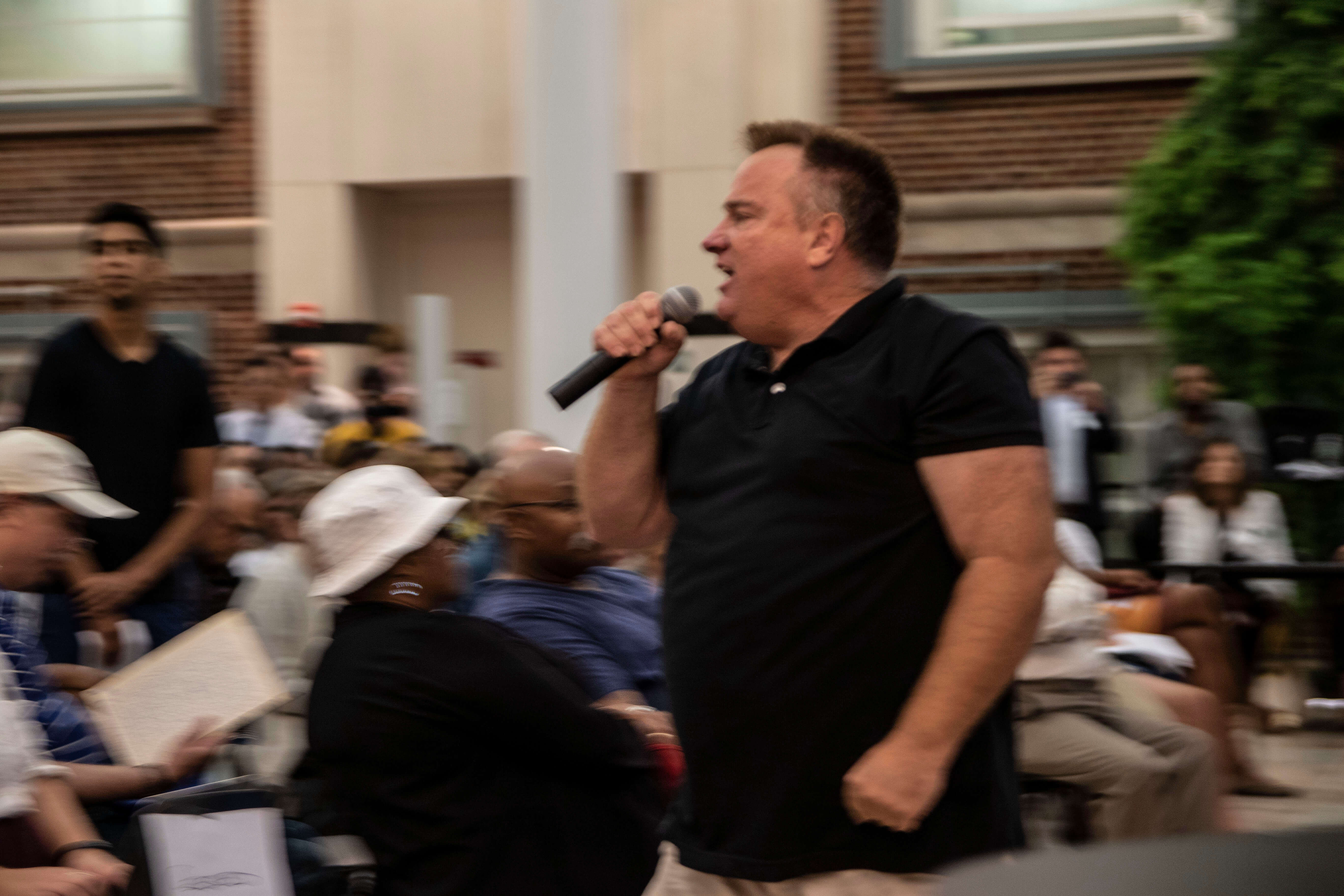
The city is planning four borough-based sites in Manhattan, Bronx, Queens and Brooklyn that will house a combined 5,000 individuals, with each facility contains approximately 1,500 beds. Since the city announced its plan shut down Rikers Island and move toward a borough-based jail system, the possible threat of an increased level of violence has frightened a number of New Yorkers.
But according to reporting from City Limits, a nonprofit media outlet that takes a deep dive into New York City issues, there is no evidence to support that neighborhood crime increases with the establishment of a jail.
“The purpose is to break the cycle of violence,” said Kaplan, when summarizing why the city decided to start work on doing away with Rikers Island, which has been described as a microcosm of everything wrong with the American criminal justice system, including perpetual inequality and injustice for people of color and the poor.
“Rikers should be shut down,” said Abdul Rabani, a member of Deisis Rising Up & Moving. He stated that growing up as an undocumented immigrant in Kew Gardens, he and his friends were the target of police harassment and were of the group the criminal justice system is programmed to victimize.
“It should not be replaced with four new jails. Seventy-nine percent of inmates at Rikers are there because they cannot afford to post bail,” he added, only to be interrupted by fellow Queens resident Mike Papa.
“One hundred percent of them are in there because they committed a crime,” Papa said.
Two more public meetings will be held in the month of October with written complaints and concerns being accepted by the Department of Correction until Oct. 15. All written complaints can be made in any language at https://rikers.cityofnewyork.us/nyc-borough-based-jails.

